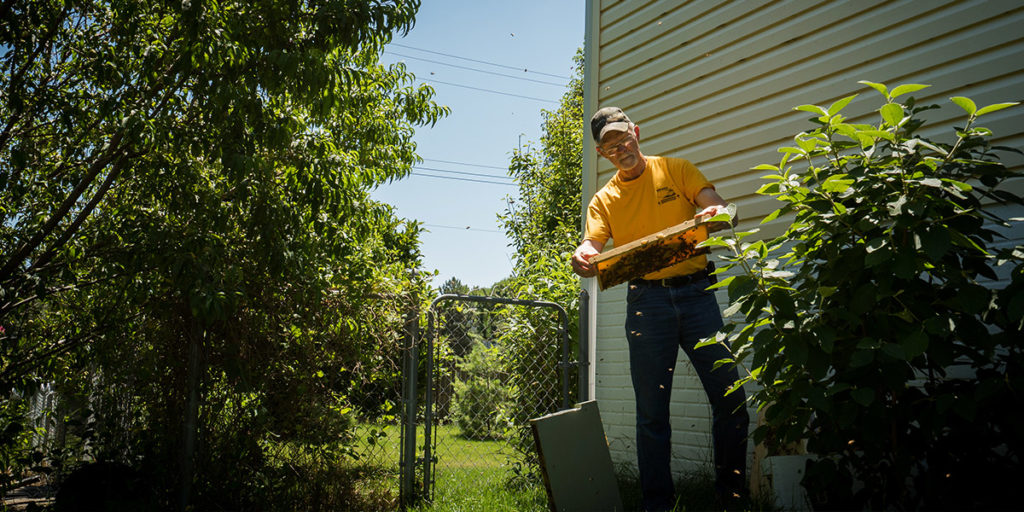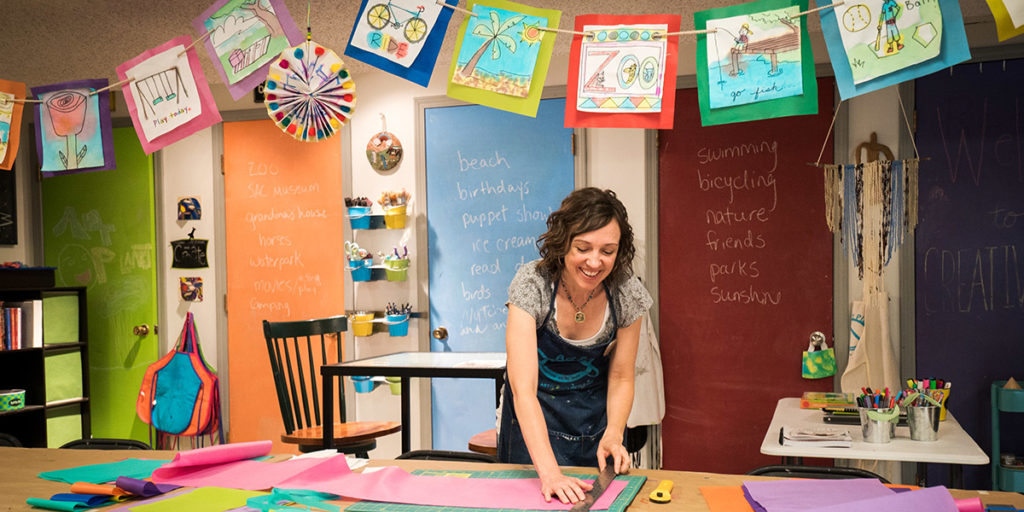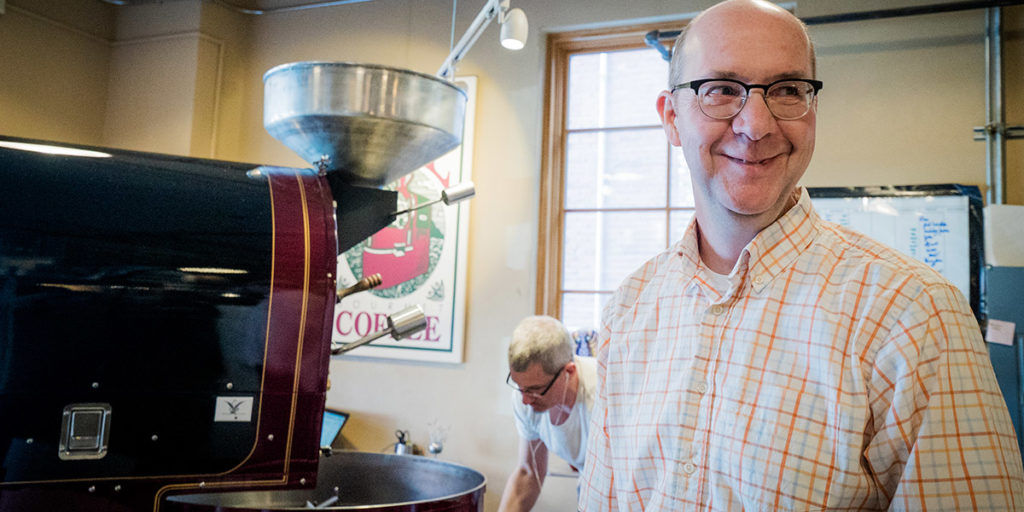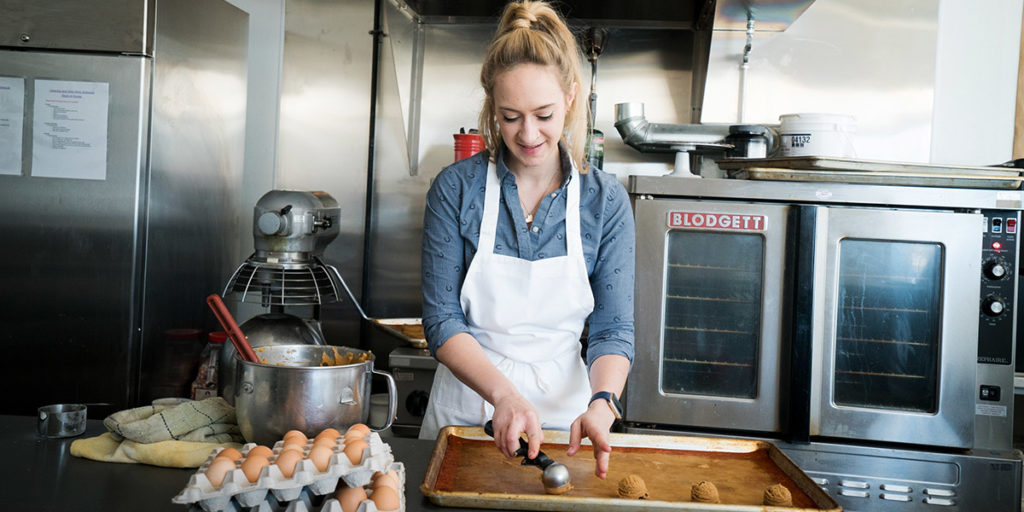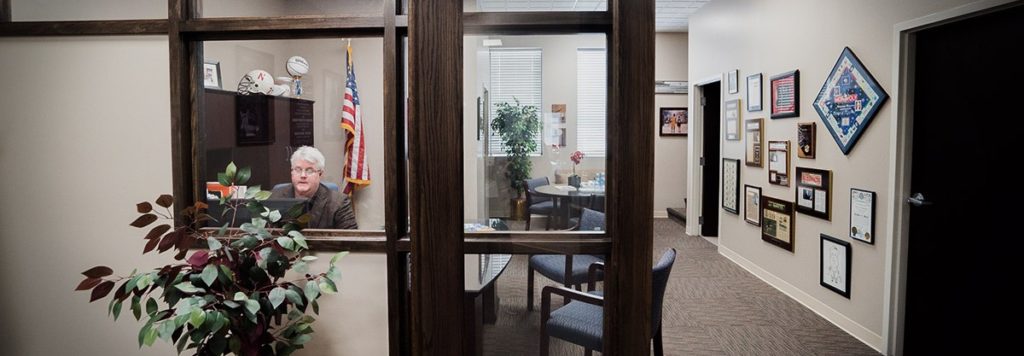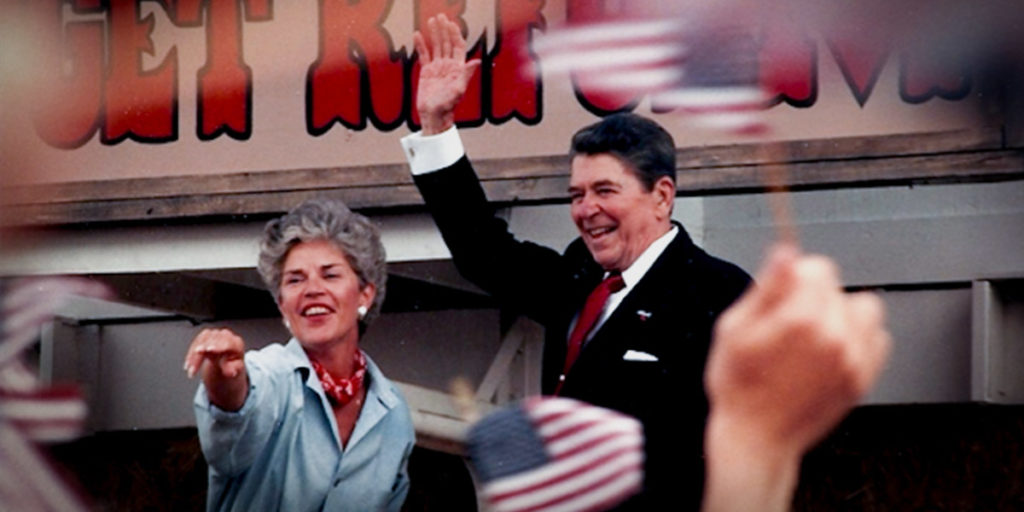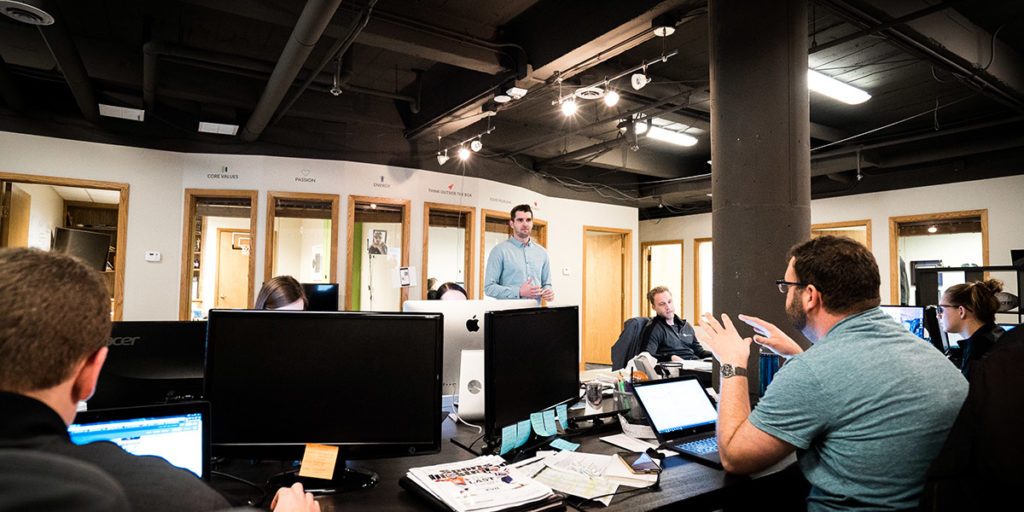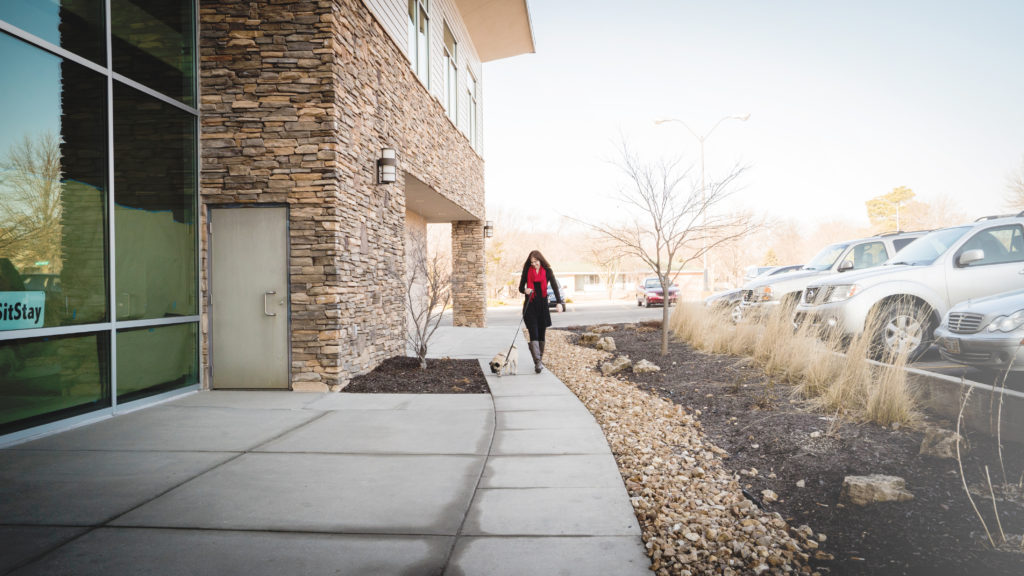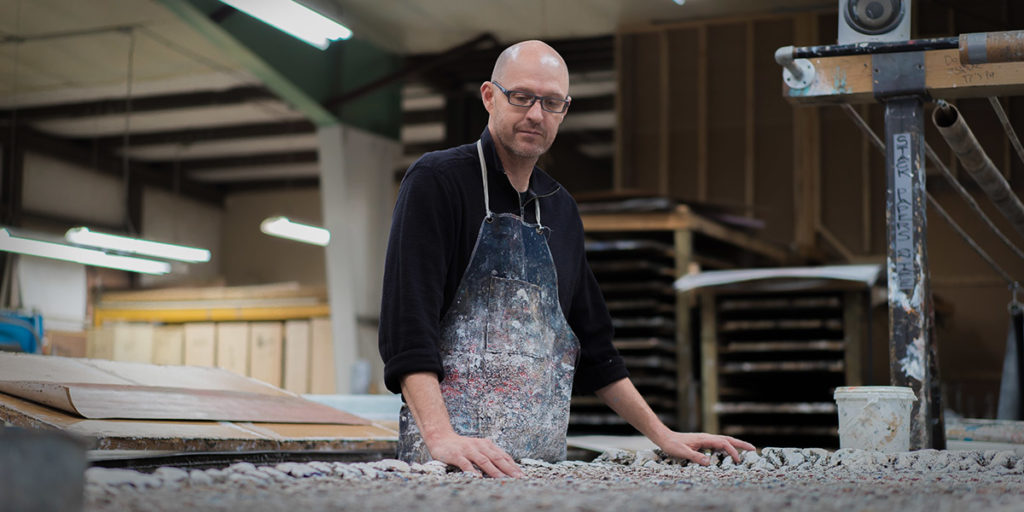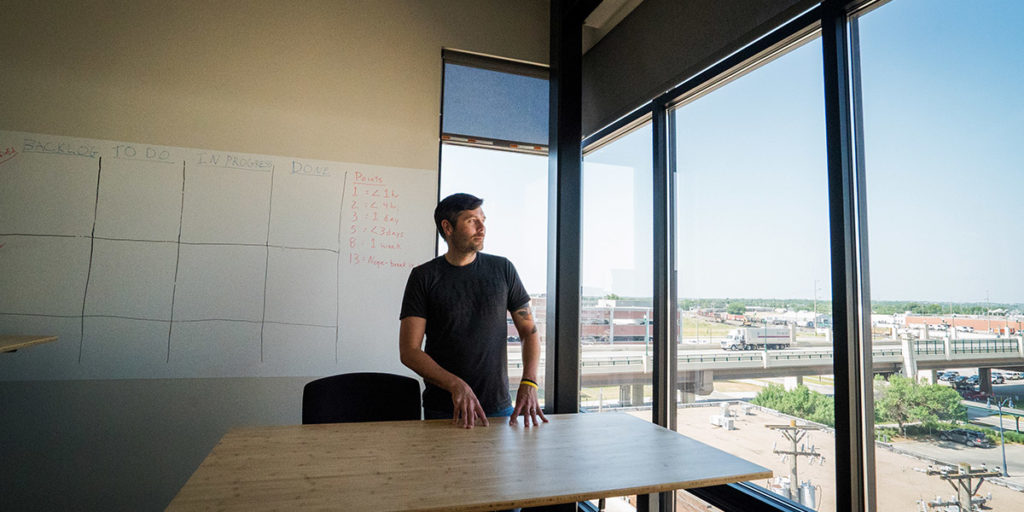
Mark Zmarzly knows where his story starts to take shape.
“It’s when I met my wife,” he said.
That answer might sound a little strange for a guy who’s in the startup world. But Mark said meeting his wife changed him because he saw his potential. It wasn’t that his wife asked him to be different or changed him in anyway, it’s that Mark started to clearly see what mattered to him and how to lean into his unique skills.
As a 20-something-year-old Mark was a driven, energetic kid who lacked direction. He had graduated with a bachelor’s degree, moved to Atlanta for a job, then moved back to Nebraska to figure out his next step. He moved in with his parents and waited tables at Lazlo’s, Lone Star and the Garden Cafe – which is where Mark first met his wife, Angie.
A few months after Mark was Angie’s waiter, they ran into each other. The two remembered each other, exchanged numbers and made plans to go on a date. Four months later the two were engaged and six months later they were married.
Now, 14 years and three kids later, Mark said meeting his wife was the fire he needed to figure out his next step in life.
“We were madly in love within a few days. And she didn’t care that I was a waiter who smoked and who ‘maybe would go to grad school.’ She didn’t care about any of that, which is why I started to care,” Mark said.
Mark stopped smoking and went on to earn his Master’s degree in English and creative writing and then he applied for a copywriting job at a bank consulting company.
Being in the banking industry had never been on Mark’s radar, but the job would give his family stability and he was ready to try something new.
He asked tons of questions and became fascinated with the psychology of finance. Mark was quickly promoted to the manager of his department and then asked to join the sales team.
He remembered thinking to himself, ‘Well, if I don’t do this then I won’t be growing, so I might as well go for it…’
Mark’s first few weeks in sales were rough. He was told to figure things out on his own, with no marketing budget and he even had a bank president swear at him over the phone. Needless to say, Mark quickly realized that he’d need to find a more innovative sales method. He started networking and hosting webinars on LinkedIn and focusing on other tech-related ways to connect with banks.
By the end of the year, Mark had brought in more sales to the company than his manager.
That’s the thing about Mark, he’s a curious guy who can’t stop learning. He said his wife jokes that he’s ‘always got something cooking’ and Mark takes that as a huge compliment.
Figuring things out is just the way his brain works. He loves solving problems and finding solutions in the most creative way possible. Which is what ultimately led him to quit his job and start his own company.
Mark calls April 15, 2014, his “liberation day.” It was the day he quit corporate America to start his company, Hip Pocket. Mark launched a software company that creates apps to help people make better financial decisions from their phone in just a few minutes. It was his take on the best way to help people and banks communicate better about valuable savings and finances.
For the past two years Mark has spent his time building his company, developing new ideas and speaking at conferences. He’s crazy about work and hates the thought of anyone outworking him. This attitude has paid off. Mark’s company has been successful in a short period of time and he recently raised over $21,500 in a Kickstarter campaign for their newest app, Hip Money.
But fast growth has its own challenges.
Mark pointed to his arm and then pulled up the rest of his sleeve to show off a series of leaves, branches and colorful bird tattoos. He got the tattoos this year. Each bird represents a member of his family – his wife and kids. It serves as a visual reminder to take life “bird by bird.” To slow down, breathe, be patient and focus on what matters.
In startup culture those things are hard, Mark said. Life happens fast and you have to execute quickly, but Mark also doesn’t want to lose track of life.
And being patient doesn’t mean Mark subdues his passion or represses his driven personality. Instead it means working to find a balance.
It’s little things like disregarding his phone when he gets home in the evening, making dinner, doing yard work and playing with his kids. It’s about learning to celebrate the wins, to stop, listen and witness his family grow and change.
“These things fill up my bucket more than anything else,” Mark said. “Just being fully present.”
Getting married and having kids has given Mark some of the best motivation he’s ever had. Sure, he builds his company for his awesome clients, but he’s also doing it to secure a future for his family and to show kids kids what life can be.
Mark’s realized that his work life and home life aren’t separate. They feed off one another, and in the end it’s the combination of the two that make his story one that matters.
